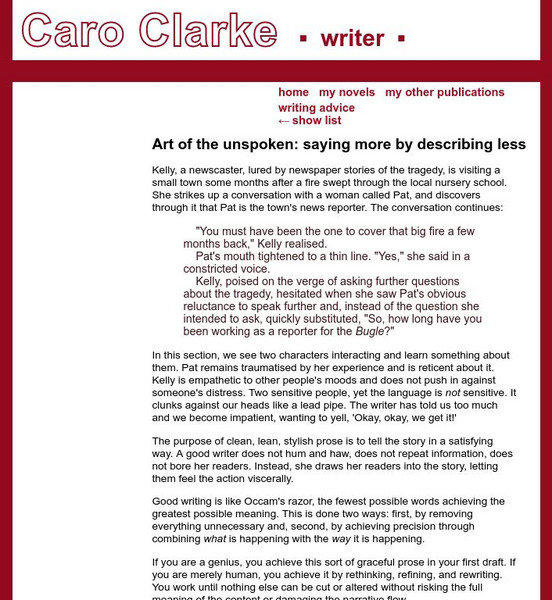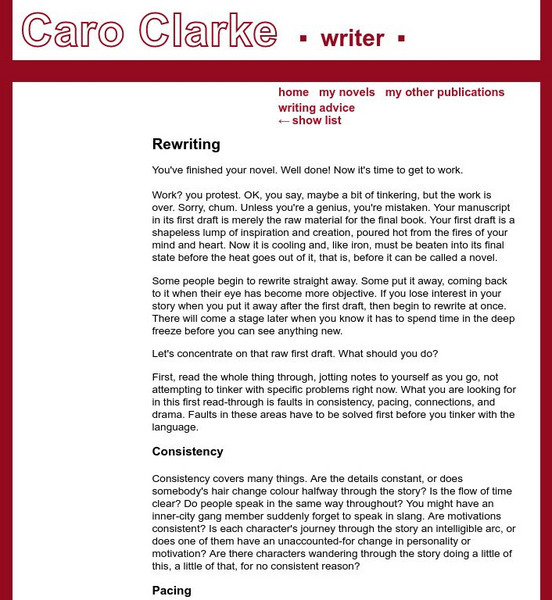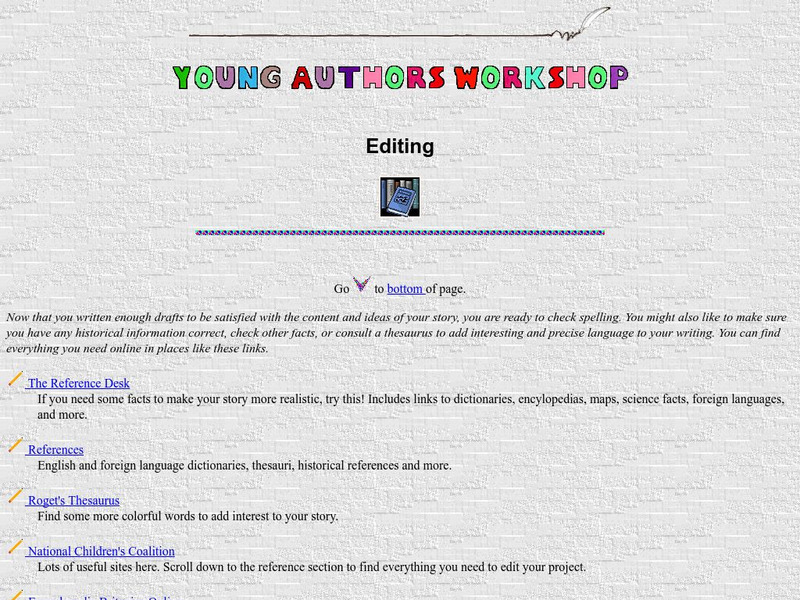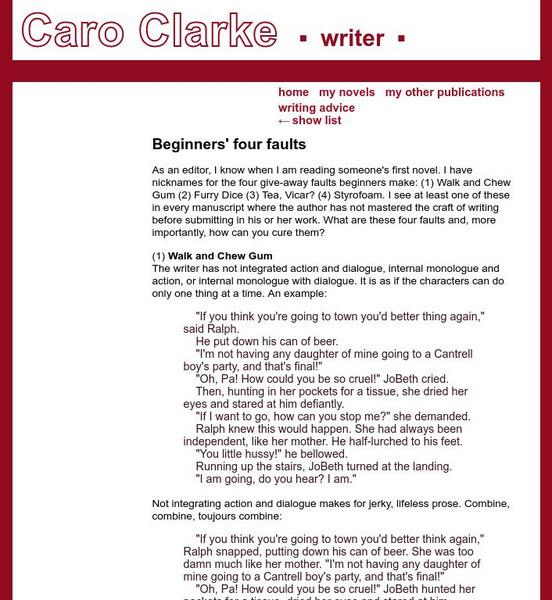Other
Wisconsin State Reading Association (Wsra)
Learn about the goals, membership, publications, and committees of this affiliate of the International Reading Association. Links also take you to useful reading resources and to its hotline, which allows members to be a part of an...
PBS
Pbs Learning Media: Virtual Professional Learning Series
Our Virtual Professional Learning Series is created for teachers-by teachers-to bring together content experts and educators from all backgrounds. With an emphasis on fun, engaging, accessible, and free tools for classrooms, these...
Caro Clarke
Writing Advice: Don't Get It Right the First Time
How much of your novel have you written? Do you keep starting it and never finishing it? Learn the answers to these questions in this novel-writing advice piece.
Caro Clarke
Not Stopping the Reader: How to Avoid Stumbling Blocks
This is the eighth article in a series that focuses on helping the new novel author. This article looks at how the author can avoid creating stumbling blocks that disrupt the flow of the novel.
Caro Clarke
Explaining Too Much: Why More Is Less
This is the eleventh article in a series that is designed to help the new novel author. This article focuses on how to eliminate needless information in your novel. The key is to not explain too much about the action.
Caro Clarke
The Art of the Unspoken: Saying More by Describing Less
This is the thirteenth article in a series that was developed to help the new novel author. This article focuses on how good descriptions aren't necessarily connected with a lot of words, good descriptions are clean and to the point.
Caro Clarke
Historical Fiction: Who Rules?
This is the fifteenth article in a series designed to help the new novel author. This article focuses on the genre of historical fiction and the role of the author. Is the author a researcher or a story-teller?
Caro Clarke
Rewriting
This is the 17th article in a series that helps the new fiction author with the final step--revision.
Caro Clarke
Caro Clarke: Description: What's It For?
This is the twelfth article in a series that is designed to help the new novel writer. This article focuses on how to effectively use descriptions in any writing.
Caro Clarke
Writing Advice: Where to Start?
This writing tutorial focuses on helping the aspiring author find a good place to start on his or her fiction.
Other
Young Author's Workshop: Resource Pages
This site provides middle school students with links to online resources that will take them step by step through the writing process. The steps in this process are those used in Writer's Workshop.
Other
Young Author's Workshop: Editing
Now that you written enough drafts to be satisfied with the content and ideas of your story, you are ready to check spelling. You might also like to make sure you have any historical information correct, check other facts, or consult a...
Other
Hickman Community Charter District: Informative Writing
Sample topics in informative writing for K-3rd grades and 4th-8th grades. CSS.ELA-Literacy.CCRA.W.2. CCSS.ELA-Literacy.WHST.6-8.9 Draw evidence from informational texts to support analysis, reflection, and research.
Other
Cyberwriter: Descriptive Writing
Resource gives writing activities leveled K-1st grade, 2nd & 3rd grades and 4th through 8th grades.
Can Teach
Can Teach: Tabloid Science Fiction
In this lesson plan students will write science fiction stories based on stories brought up in the tabloids. Lesson plan indicated for 5th grade and above.
Caro Clarke
Caro Clarke: Writing Advice: Beginner's Four Faults
This site is a personal site from Caro Clarke. The third installment in this series looks at the four major mistakes made by beginning authors. The main idea of this article is that the author needs to be able to combine dialogue with...















